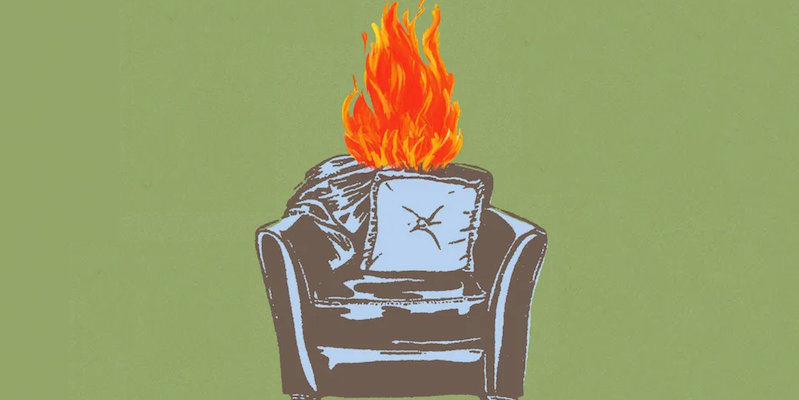Article continues after advertisement
This week’s barrel of brilliant reviews includes Lara Feigel on Julia Armfield’s Private Rites, Jess Bergman on Tony Tulathimutte’s Rejection, Marie-Helene Bertino on Gu Byeong-mo’s Apartment Women, Leigh Haber on Weike Wang’s Rental House, and Casey Cep on Callum Robinson’s Ingrained.
Brought to you by Book Marks, Lit Hub’s home for book reviews.
*

“This rainy city, where people live makeshift lives on the top floors of flooded tower blocks, travelling by ferry, is natural territory for Julia Armfield. She is both poet and prophet of the watery and the queer and the channels connecting them. Her vision of the sea creature in all of us–scales hidden under skin–is as seductive as the charged, casually incandescent sentences she conjures it in. She is writing in an honourable tradition: throughout literary history there are watery women destined to find and to lose themselves in the depths of the sea, whether that’s Edna drowning in Kate Chopin’s The Awakening, or Ellen accepting her destiny as a mermaid in Rose Macaulay’s And No Man’s Wit. Armfield has given this trope new political urgency, first in 2022’s Our Wives Under the Sea, featuring a hushed-up submarine disaster, and now in this all-too-convincing imagining of the next phase in the climate crisis. Private Rites is so compelling partly because both the narrator and the protagonists feel intensely drawn to this watery world, even as they know it signals their end.
…
The great strength of Private Rites is that it never commits to an apocalyptic vision, even as the world it depicts becomes cartoonishly apocalyptic. In the final, astonishingly moving pages, the narrator affirms her commitment to dailiness in life and in art. ‘Better to hold one’s hands to whatever warmth there is, to kiss and talk and grieve and fuck and hold tight against the whitening of the sky.’ Is it possible both to be responsible in the face of the largest challenges and to honour the tiny possibilities for grace in love? Armfield stages this dilemma with great vitality. There’s no new order, as in Lear; it’s too late for the kind of responsibility that might fend off apocalypse. But here, too, the survivors have discovered love with new clarity and force, and small forms of weathered, personal redemption remain grimly possible.”
–Lara Feigel on Julia Armfield’s Private Rites (The Guardian)
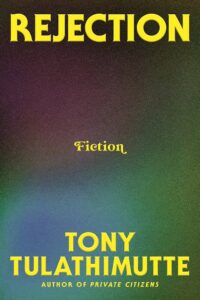
“Tulathimutte’s debut novel was more kaleidoscopic, a send-up of millennial pathologies that also took aim at reality TV, New Age management seminars, plastic surgery, hipster self-hatred, and venture capitalism, among many other targets. In Rejection,he narrows his scope, offering a series of variations on foiled desire, like movements in a perverted symphony. Until, that is, a belated turn reveals the book is concerned not only with Very Online sexual frustration, but with the plight of the author in the internet age.
…
“This postmodern twist recasts ‘Main Character’ as an unflattering analogy for literary production—the author as mouth-breathing puppet master, playing shell games with a captive audience for revenge or their own amusement. Its consequences ripple through the entire collection. If Botgate is nothing but a series of shitposts by Tulathimutte, then that means Bee never existed at all—and neither did Kant, or the feminist, or any of Rejection’s other recurring characters. He made them all up. Of course, we know this to be literally true. But, as most novels do, the book has until now depended on our suppression of that knowledge. Insisting we recognize this basic fact suggests that much of Rejection is misdirection: These stories are not really about the loneliness of the incel, but of the fiction writer.
…
“It’s not uncommon for contemporary fiction to come predigested these days, wreathed in enough protective irony to render any shortcomings plausibly intentional, or else pointing up those very shortcomings in knowing dialogue. Tulathimutte’s act of autocriticism takes things a step further, however, offering a detailed exegesis of each story in the collection and dismissing the possibility that someone else might produce a worthy reading of them … By imitating the methods of this outrage-bait, Tulathimutte captures the disorienting experience of being manipulated by a stranger on social media. And he gets the added pleasure of subjecting his readers to the kinds of indignities he sees as intrinsic to the publishing process, where bad faith abounds.”
–Jess Bergman on Tony Tulathimutte’s Rejection (The New Republic)
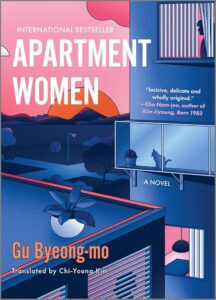
“A novel is also a dwelling, and this one echoes its subject thematically. If interiority is a potentially endless veranda, Gu’s protagonists are surprisingly limited by theirs; not even their dreams venture from heteronormative familial ideals. Some readers might long for a literal or metaphorical trap door that would pierce or reveal; others might appreciate the apt claustrophobia of the author’s restraint.
Gu is an exciting writer in the contemporary renaissance in Korean art. Like the 2024 Nobel laureate Han Kang, Gu gives voice to the rich inner lives of women grappling with misogyny.
After fuses explode in satisfying if unsurprising ways, there is a lovely scene in which a new tenant considers a cumbersome backyard table in the complex’s shared yard: ‘This was a space ruled by a strict sense of what should be, rather than utility or reason.’ A valuable look into the culture of communal living that has earned South Korea the nickname ‘the republic of apartments,’ this novel wisely invites readers into these spaces, to move through the design and derive its purpose for themselves.”
–Marie-Helene Bertino on Gu Byeong-mo’s Apartment Women (The New York Times Book Review)
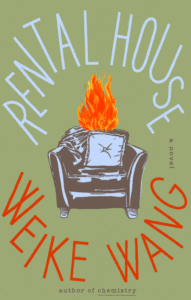
“On the surface, Weike Wang’s rueful and tender third novel, Rental House, is a portrait of a seemingly low-key marriage in which both husband and wife regularly downgrade expectations so as to avert conflict and disappointment. On closer inspection, though, Wang’s slender tour de force offers one of the most nuanced, astute critiques of America now I’ve read in years. And it’s also frequently hilarious.
…
“Wang is an exquisite practitioner of deadpan, and her dialogue is full of laugh-aloud zingers. But she also uses humorous insights to pierce the outer shell and plunge into themes of loneliness and despair. Wang’s also adept at expanding way beyond her characters’ micro universe, to comment on how Asian Americans are ‘othered,’ forced to navigate the world differently, or on the class disparity among the Chinese diaspora, which relegates Keru’s farming family from Southwest China as belonging to those whose dialect is sneeringly called ‘talk of the dirt.’ So often in the course of reading Rental House, I found myself snorting with hilarity at Wang’s perfect comic timing, only to realize that she was getting to something much deeper.
…
“Throughout Wang’s three works of fiction, one discerns the same singular wit and interrogation of mores about gender, ethnicity and income disparity. But here she is at her most poignant and penetrating. She’s cast her lens, with immense empathy, on how divisiveness has hardened our desolation and made us more desirous than ever of a connection we rarely feel. She’s done what only great fiction writers can do.”
–Leigh Haber on Weike Wang’s Rental House (The Los Angeles Times)
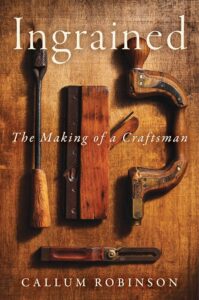
“The literature of work begins in childhood but doesn’t end there. Novelists have long attended to labor, from the mills of Charlotte Brontë’s Shirley and the mines of Émile Zola’s Germinal to the more recent portrayal of Target loading docks in Adelle Waldman’s Help Wanted. In the world of nonfiction, though, we regrettably associate work with how-to and self-help: the manuals that teach you to become anything from a mechanic to a movie director; the wikiHow pages that promise to make anyone, regardless of profession, capable of cleaning a P-trap, refinishing a floor, or replacing the coolant in an air-conditioner.
But there are also wonderful nonfiction books about work, above all by those who have dedicated their lives to specific types of it. I don’t mean political memoirs, which instrumentalize the past to secure votes or shape legacies, or celebrity memoirs and tell-alls, which forsake the bedrock of a vocation to examine its subsoil and topsoil, recording social scenes and settling scores. I have in mind books that dwell deeply on the nature and practice of work itself.
Think of James Herriot’s account of life as a rural veterinarian, All Creatures Great and Small, or Reinhold Niebuhr’s reflections on parish ministry, Leaves from the Notebook of a Tamed Cynic; Michael Lewis’s revelatory Liar’s Poker or Anthony Bourdain’s scandalous Kitchen Confidential. More recent books like this include Caitlin Doughty’s Smoke Gets in Your Eyes: And Other Lessons from the Crematory, Hope Jahren’s Lab Girl, Finn Murphy’s The Long Haul: A Trucker’s Tales of Life on the Road, and Stephanie Land’s Maid: Hard Work, Low Pay, and a Mother’s Will to Survive. Such memoirs provide the satisfaction of a surreptitious Take Your Child to Work Day, documenting in pleasing and illuminating detail what people do all day, but also why they do it. A charming new addition to this genre is Ingrained: The Making of a Craftsman, by the carpenter Callum Robinson.
…
“If this consistently lovely memoir has a shortcoming, it is that, funnily enough, Robinson misses the forest for the trees. The best books about work manage to transcend the individual author’s experiences; we learn from them not just the lingo of truck drivers or the jargon of geobiologists but something about the changing labor market in which all of us consciously and unconsciously operate—the exploitative economics of low-wage domestic jobs, say, or the fraudulent tactics of bond salesmen. Ingrained mostly shies away from the broad view… Craft and craftsmen are by far his best subjects, and he is eloquent not only on how he makes the things he makes but on how he himself was made—the tender if thorny relationship between father and son; the stabilizing yet propulsive forces of marriage.”
–Casey Cep on Callum Robinson’s Ingrained: The Making of a Craftsman (The New Yorker)

